Israel Accuses Iran’s Guards Of Major Cyberattack Plans
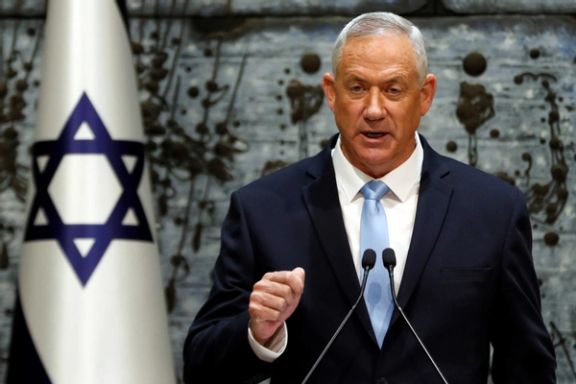
Israel says Iranian Revolutionary Guard conducted research to damage ships, gas stations and industrial plants in several countries including Britain, the US, France and Israel.

Israel says Iranian Revolutionary Guard conducted research to damage ships, gas stations and industrial plants in several countries including Britain, the US, France and Israel.
Defense minister Benny Gantz said on Wednesday that an IRGC cyber unit called “Shahid Kaveh” was involved in the alleged project.
Britain's Sky News reported similar allegations last year, saying the Iranian embassy in London had not responded to them.
Gantz hinted that Israel -- which is widely believed to have waged cyber war against Iran's nuclear facilities and other infrastructure -- may retaliate physically against enemy hackers.
"We know who they are, we target them and those who direct them. They are in our sights as we speak - and not just in the cyber-space," he said. "There is a variety of possible responses to cyber-attacks - in and outside of the cyber-domain."
Gantz also charged the Iranian-backed Lebanese militia Hezbollah of conducting a cyber operation designed to disrupt a UN peacekeeping mission on the border between the countries.
He said "Iranian security institutions in cooperation with Hezbollah (recently) launched a cyber operation with the aim of stealing materials about UNIFIL activities and deployment in the area, for Hezbollah's use".
"This is yet another direct attack by Iran and Hezbollah on Lebanese citizens and on Lebanon's stability," he told a cyber conference at Tel Aviv University, without elaborating.
Established in 1978, UNIFIL patrols Lebanon's southern border. It is charged with monitoring the ceasefire that ended the last war between Hezbollah and Israel in 2006.
Reporting by Reuters
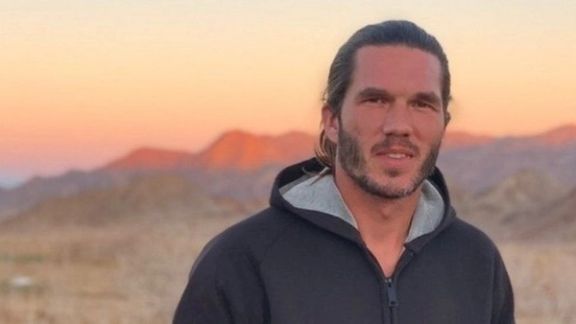
Iran confirmed a long prison sentence for French national Benjamin Briere on allegations of spying, as it began nuclear talks mediated by the European Union.
His Iranian Paris-based lawyer, Saied Dehghan, said Tuesday that an Iranian appeals court has upheld the sentence on charges of “spying” and “propaganda against the regime” and Briere was sentenced to eight years and eight months in prison.
The appeals court said in its verdict that Brière is "an agent in the service of an enemy state," and mentioned “sympathy with the victims of the Ukrainian plane” [Flight 752 downed by Iran]”, “IT expertise", and "possession of more than one hard drive and mobile phone” as reasons behind the decision.
The airliner referred to in the verdict was shot down by two air-defense missiles fired by the Revolutionary Guard (IRGC) on January 8, 2020, as it took off from Tehran’s Imam Khomeini International Airport killing all 176 people onboard.
Briere’s other lawyer Philippe Valent, said his case was being "instrumentalized" by the Iranian authorities. Accusing Iran of holding him as a "hostage." He added, "It's shocking and dramatic."
“It is unacceptable that Benjamin Briere remains a hostage to negotiations on the part of a regime that persists in its desire to arbitrarily detain a French citizen and use him as a bargaining chip,” he added, urging “the French, American and British authorities to make the liberation of hostages a pre-condition for the resumption of [nuclear] negotiations.”
"Benjamin Brière has obviously not - nor has he ever - been given a fair trial before impartial judges. He was not given any right to defend himself, no access to the prosecution's case, no opportunity to prepare and present a defense before the judges of the Revolutionary Court," Valent said in a statement, adding that he would appeal. "The family of Benjamin Brière is now calling on the French authorities to take immediate steps to allow his repatriation".
On Tuesday, France's foreign ministry said that the sentence had no basis in fact and was "unacceptable".
His sister Blandine Brière told AFP that her brother was a "political hostage," saying that "It is clear that this is a useful political trial for Iran, which sends a message to the French government. We are nothing in the face of this, we feel like pawns in a diplomatic game."
Briere, a 36-year-old travel blogger, has been held in Iran since May 2020, when he was arrested after flying a recreational helicam -- a remote-controlled mini helicopter used to obtain aerial or motion images -- in a national park near the Turkmenistan-Iran border. He went on hunger strike at Valikabad prison in Mashhad in December to protest his detention conditions.
In the past decade, Iran's Revolutionary Guards have arrested dozens of dual nationals and foreigners, mostly on unproven allegations of espionage and breach of security, in what human rights organizations have said is essentially hostage taking.
The sentence comes as indirect or "proximity" nuclear talks between Iran and the United States began Tuesday with negotiators in different parts of a hotel in Doha, Qatar.
Enrique Mora, the European Union official who chaired year-long talks in Vienna aimed at reviving the 2015 Iran nuclear deal (the Joint Comprehensive Plan of Action, JCPOA), is acting as a mediator between the teams led by Rob Malley, the United States special envoy, and Ali Bagheri-Kani, a deputy Iranian foreign minister.
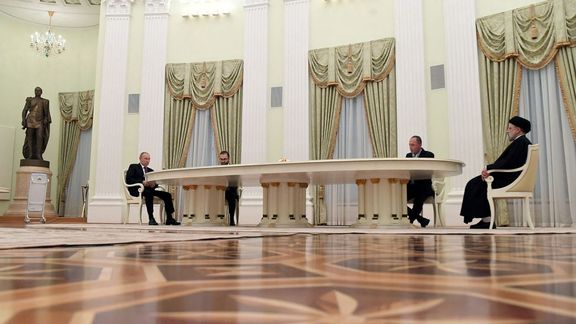
Iranian President Ebrahim Raisi and his Russian counterpart Vladimir Putin will hold a meeting during their visit to Ashgabat, the capital of Turkmenistan, on Wednesday.
Assistant to the Russian President for Foreign Policy Yuri Viktorovich Ushakov said on Tuesday that the meeting will take place on the sidelines of the 6th summit of the heads of state of the Caspian Sea littoral states.
This is Putin's first known trip abroad since the Russian invasion of Ukraine. Kremlin spokesman Dmitry Peskov said Putin would return to Moscow Wednesday evening.
The meeting is the second between the two presidents since Raisi took office in August 2021. They met in the Russian capital Moscow in January 2022.
Raisi is also scheduled to hold separate meetings with his counterparts from the other three participating countries in the summit, namely Turkmenistan, Kazakhstan, and Azerbaijan Republic.
The meeting of the foreign ministers of these countries kicked off on Tuesday to “review cooperation in the Caspian Sea and discuss the further collaboration modalities for the upcoming meeting of leaders of five Caspian littoral states.”
Russian Foreign Ministry Spokeswoman Maria Zakharova said, "The meeting, organized on the eve of the Fifth Caspian Summit, witnessed the signing of a historical Convention on the Legal Status of the Caspian Sea.”
Addressing the event, Iran’s Foreign Minister Hossein Amir-Abdollahian said, “We support Russia's recent proposal to develop and establish a structure of cooperation in the Caspian Sea. This initiative strengthens and systematizes the five-way cooperation in the Caspian Sea.”
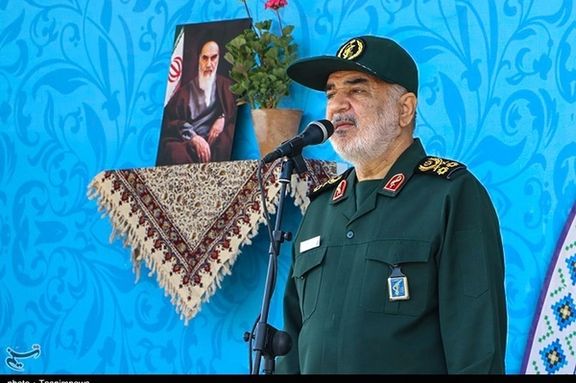
Iran has criticized Muslim countries for relying on Israel for their security, which it says cannot defend itself as the Jewish state is teaming up with regional countries against Iran.
Revolutionary Guard’s commander Hossein Salami in a meeting with the visiting Chairman of the Joint Chiefs of Staff of Pakistan General Nadeem Raza Nishan on Tuesday, also said that “Israel is the enemy of the Islamic world and humanity.”
A military alliance is being formed in the region under the leadership of Washington with many Arab countries starting to coordinate with Israel as the member of CENTCOM, the US Central Command, covering the Middle East.
Seriously concerned about the growing ties, the Islamic Republic is repeatedly warning neighbors against allowing Israel to establish a presence in the Persian Gulf region.
Earlier in the day, Israeli Prime Minister Naftali Bennett addressed Iran saying, “You can no longer hit Israel indirectly and through proxies and think you’ll get away with it.”
The outgoing premier said “wreaking havoc in Tehran” is not a policy, “Our policy is, if you mess with Israel, you’ll pay a price,” apparently referring to air raid sirens that sounded in Jerusalem and Eilat last week, reportedly triggered by a cyberattack possibly by Iranian hackers. On Monday, Iran’s major steel companies were hit by a cyberattack.
Israel intends to ask the US to approve the delivery of an Israeli laser-powered air defense system to Arab countries aligned against Iran, including Saudi Arabia, as part of a US-led effort to establish the regional alliance.
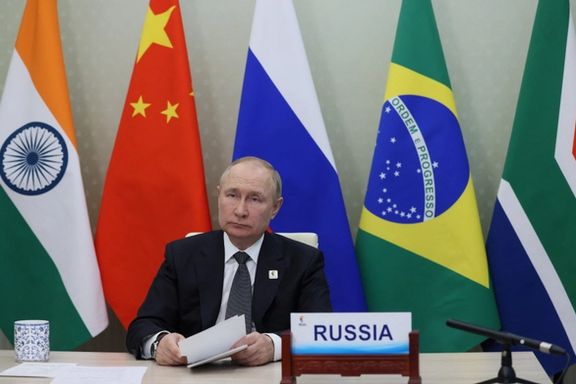
Iran has applied to become a member in the group of emerging economies known as the BRICS, Russia and Iran’s foreign ministry said on Monday.
Iran's membership in the BRICS group, which includes Brazil, Russia, India, China and South Africa, "would result in added values for both sides," Iran's Foreign Ministry spokesperson said.
Russian Foreign Ministry spokeswoman Maria Zakharova said separately that Argentina had also applied to join the group. Argentinian officials could not be reached for immediate comment.
Argentina's President Alberto Fernandez, currently in Europe, has in recent days reiterated his desire for Argentina to join BRICS.
"While the White House was thinking about what else to turn off in the world, ban or spoil, Argentina and Iran applied to join the BRICS," Zakharova wrote on the Telegram messaging app.
Both Iran and Russia are under wide-ranging international and US sanctions, looking for ways to expand trading ties to survive export bans.
Russia has long been pushing to forge closer ties with Asia, South America and the Middle East, but it has intensified its efforts recently to weather sanctions imposed by Europe, the United States and other countries over its invasion on Ukraine.
Iran has long espoused closer ties with “the East”, meaning China and Russia as it has continued nuclear and ballistic missile programs seen as threats by the United States and several regional countries.
The BRICS is not a formal alliance, but a nascent international grouping intended to expand the power of emerging economies in larger international organizations such as the International Monetary Fund and the World Bank.
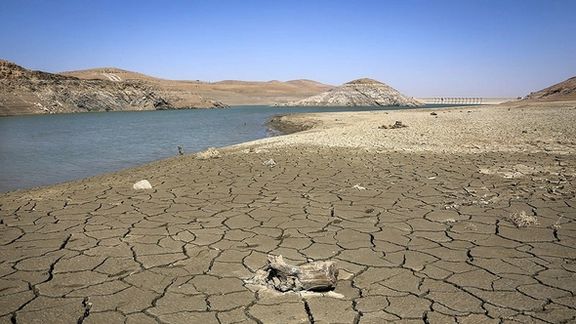
Iran is the tenth producer of crude steel in the world, but the industry with a high demand for water is seriously threatening the country’s scarce resources.
Most of Iran's largest steel factories are located in arid regions such as Esfahan, Yazd, and Kerman provinces despite the very high water use in steel production. 97 percent of Iran’s land is arid or semi-arid.
To produce every metric ton of steel, the industry in Iran uses 230,000 liters of water. According to official figures, the steel industry uses around 70 percent of water reserves of dams, leaving only 30 percent for other industries, agriculture, and urban use.
According to the head of Iran’s National Standards Organization, the industry uses 60 percent more electricity to produce one metric ton of crude steel in comparison with developed countries. The annual wastage of electricity in the industry is around 24 billion KW/H.
At the height of cold and hot months, steel mills have to cope with electricity outages, as usage in Iran is far more than what it can produce. This month, there are reports of industrial plants including steel production shutting down intermittently due to electricity shortages.
The rapid growth in demand for water in Iran – resulting from the growth of population, agriculture, and industries -- has led to severe depletion of available water. The annual renewable water availability per capita reached a crisis level in 2021. Studies by the United Nations Development Program (UNDP) indicate that by 2040 Iran is likely to face a severe water stress level.
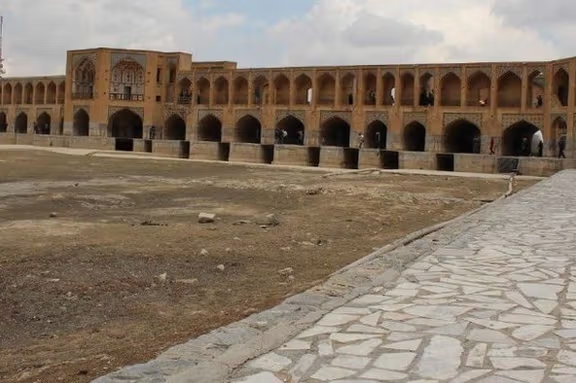
According to official figures, in December 2021, the volume of water stored behind the country's dams had dropped by 44% in comparison with the same month in the previous year.
Iran is also among the ten countries in the world that extract most groundwater and a hotspot of land subsidence induced by groundwater withdrawal. Ground subsidence has become a serious threat in 18 out of the 31 provinces of Iran and has become a threat to around a quarter of Iran’s urban population.
Hydro-electric electricity production amounts to 15 percent of Iran’s total electricity production which also dropped by around 40 percent in the previous calendar year (ended March 20, 2022) in comparison with the previous year mostly due to drought.
According to the World Steel Association (WSA), Iran produced over 28 million metric tons of steel in 2021, putting it just behind Brazil. The country, however, ranked 15th in net exports.
Iran is planning to produce 32 million metric tons of steel in the current Iranian calendar year (ending March 20, 2022) and authorities hope to climb to the seventh place among the world’s top steel producers by the 2025.
Production of all the top ten suppliers, including top steelmaker China, declined in the first 5 months of 2022, except India that had an increase of 6.5 percent. But Iran had the highest drop.
The steel industry has highly contributed to the drying of Zayandeh Roud river in Esfahan Province and seriously damaged agriculture in the region, giving rise to water protests in the past year.
Amid United States' sanctions on Iran's oil exports, steel is one of the main exports earning foreign currency for the government, which faces a serious financial crunch.